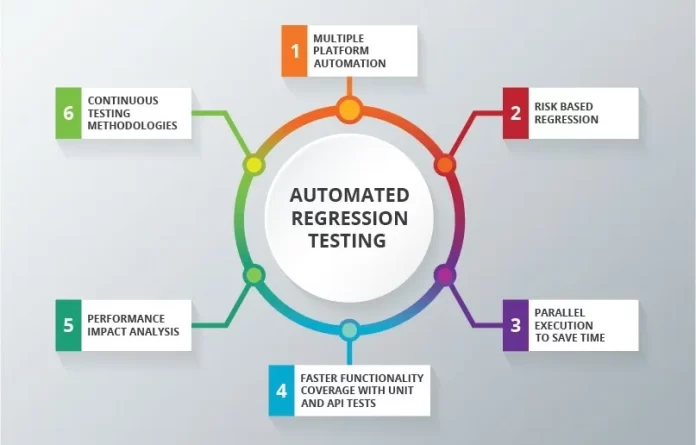A hard challenge in the fast-paced world of software development, where new updates and additions are constantly being introduced, is maintaining the integrity and functionality of an application. No matter how small, changes to code have the potential to destroy functionality or introduce new issues. Regression testing is a crucial testing approach that developers use to address this problem. We will explore the idea of regression testing, its significance in software development, and the revolutionary advantages of automating this crucial procedure in this blog article.
What is Regression Testing?
Regression testing is a testing method used in software development to ensure that recent code upgrades or modifications don’t adversely affect the application’s current functionality. Retesting the software is necessary to make sure that no faults or broken functionality have been unintentionally introduced by fresh changes. Regression testing’s major objective is to make sure that the system as a whole is stable and functions as intended after each round of modifications.
Why Is Automating Regression Testing Necessary?
- Efficiency in terms of time and money: Manual regression testing can be labor- and time-intensive, especially for big and complicated software projects. Contrarily, automated regression testing accelerates the procedure by carrying out preset test scripts; as a result, the time and effort needed are greatly reduced. Development teams can more wisely use their resources thanks to this efficiency, which also results in cost savings.
- Thorough Test Coverage: Manual testers find it more and harder to offer thorough test coverage as software applications get more sophisticated. By running a predetermined set of test scripts, automated regression testing makes sure that all crucial functionalities, edge cases, and corner circumstances are adequately checked.
- Increased Accuracy and Reliability: Manual testing might produce uneven findings because human testers can unintentionally add errors. By meticulously following preset test scripts, automated testing technologies deliver consistent and dependable test executions. Eliminating human error improves testing accuracy, providing developers with more assurance about the reliability and efficiency of their products.
- Early Bug Detection: Developers can execute test cases quickly and frequently, even after small code alterations, thanks to automated regression testing. This makes it possible to identify and fix any flaws early on, decreasing the possibility that serious problems may surface later in the development process. Early bug discovery speeds up the development process, prevents expensive rework, and guarantees a better user experience.
- Faster Time to Market: In the continuously shifting market of today, maintaining competitiveness requires the capacity to quickly deliver software upgrades and new features. Regression testing that is automated speeds up testing, allowing development teams to confidently and quickly validate changes. Software upgrades may then be released more quickly, cutting down on time to market and allowing businesses to stay one step ahead of rivals.
- Improved Test Collaboration: The testing automation platform fosters improved collaboration between software developers, testers, and other stakeholders. All team members can quickly comprehend the testing process and its results thanks to the ease with which test scripts can be shared and reused.
In conclusion,
Regression testing is a crucial component of software development, and in today’s quick-paced and fiercely competitive industry, automating this process has become essential. The full potential of regression testing may be realized by development teams by using a powerful testing automation platform like Opkey, which also guarantees the delivery of software products of the highest caliber. Faster releases, lower costs, and higher software quality can all be maintained with Opkey’s extensive testing capabilities and easy integration into the development workflow.








